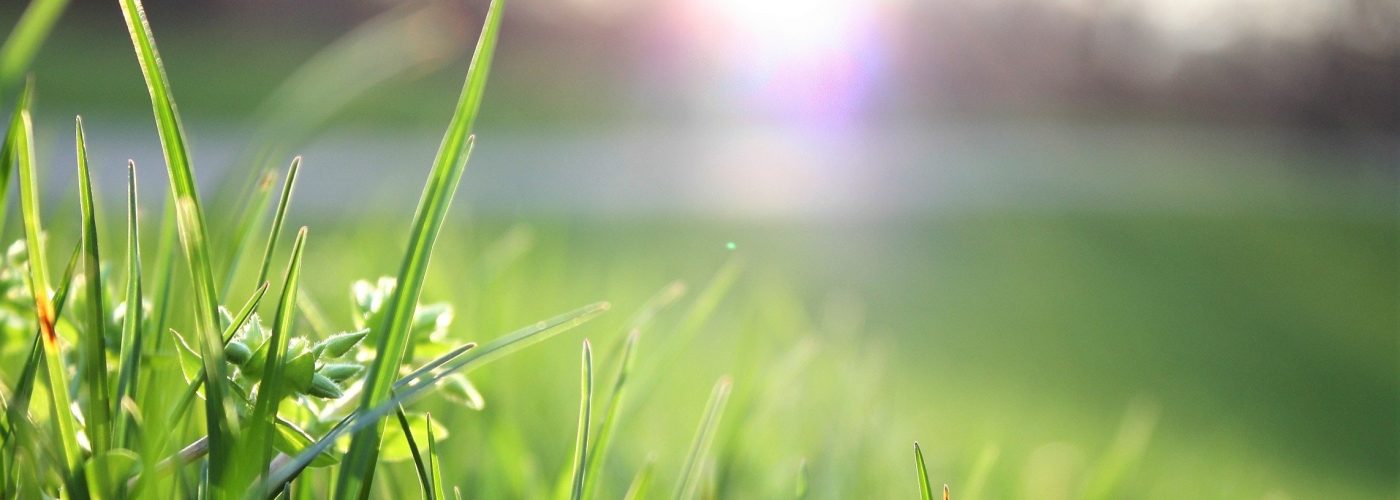Summer officially begins on June 21 in the Northern Hemisphere, so there’s still some time to prepare your lawn for the hottest days ahead. Ideally, you’d want to start this process in early spring (or whenever soil temperatures rise to about 65 degrees Fahrenheit), but better late than never, right?
Taking the necessary steps to prepare your lawn for a new season allows the grass to get all of the nutrients it needs to thrive all season long. This is especially important since summer is the hottest season, and it can really dry out your grass. Here are the steps you need to take to prepare your lawn for summer.
Preparing Your Lawn for Summer
Water Your Lawn
Because it’s getting warmer, you’re going to need to water your lawn once every week. Make sure the grass is saturated with about one inch of water, and water either in the morning or in the evening to avoid the ground drying out too quickly. Also, if it rains a lot where you live, you may not need to water your lawn as frequently. Watering your lawn is just one of the steps to maintaining a lush green lawn this summer.
Seed/Reseed Your Grass
Some areas of your lawn may need to be reseeded, particularly if there are barren patches around your yard. Start by spreading some fertilizer on the bare spots, then go over with the seeds. Just keep in mind that any seeding/reseeding is best done in early spring. Doing so in late spring may not guarantee full grass coverage.
Mow Your Lawn
This tip is probably a no-brainer since the majority of people mow their lawns. However, it’s important to know the correct way to mow your lawn for each season. For instance, grass shouldn’t be cut any more than one third of the way, and raising the cutting height on your lawn mower helps keep the soil shaded. Also, regularly mowing your lawn throughout the springtime will help make the roots stronger.
Fertilize Your Grass
Not all lawn grasses are the same, so fertilization before and during summer will look different for everyone. For example, warm-season grasses need a nitrogen-rich fertilizer in early spring and late summer, whereas cool-season grasses will need less nitrogen in early spring and a higher nitrogen content in the early fall.
Dethatch Your Lawn
The colder months allow for more thatch (dead leaves, grass, weeds, and other debris) to build up on your lawn, so you’ll need to make sure you remove it before mowing, fertilizing, and watering. The reason is because thatch blocks sunlight, water, and other nutrients your grass needs to thrive. All you need is a dethatching rake to remove this debris, but remember to rake in only one direction to avoid damaging the roots.
Balance the Acidity of Your Grass
Sometimes even fertilizing your grass doesn’t make your lawn lush, and the reason behind this may be that your soil is too acidic. The proper pH level for soil is between 6 and 7, and you can check this with an at-home soil tester. If your soil level is below a 6, you’ll need to purchase lime and a rotary spreader to treat your soil.
Aerate Your Lawn
Aeration is the process of loosening compacted soil to allow water, sunlight, and other nutrients to penetrate the soil better. You should aerate your lawn right after dethatching for the best results. This can be a tricky task, so contact a professional lawn service that specializes in aeration if you have no idea where to start.
Maintaining Your Lawn Through Summer
Depending on the type of grass you have, you may need to do more or less lawn maintenance over the summer. Warm-season grasses usually need the most maintenance throughout the summer months, so here’s what you need to do:
- Set your lawn mower blades about one inch higher and mow more frequently.
- Continue to water once a week unless it gets really rainy throughout the summer.
- Fertilize every month or every other month (about every 4-8 weeks).
Don’t think that it’s impossible for you to have a lush green lawn for your summer barbecues, picnics, or pool parties— because it is possible! However, if you are experiencing serious problems with your lawn it’s best to have a professional lawn care service check it out and help you determine the cause of the problem and a solution.





